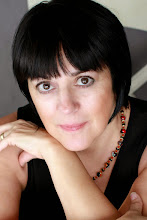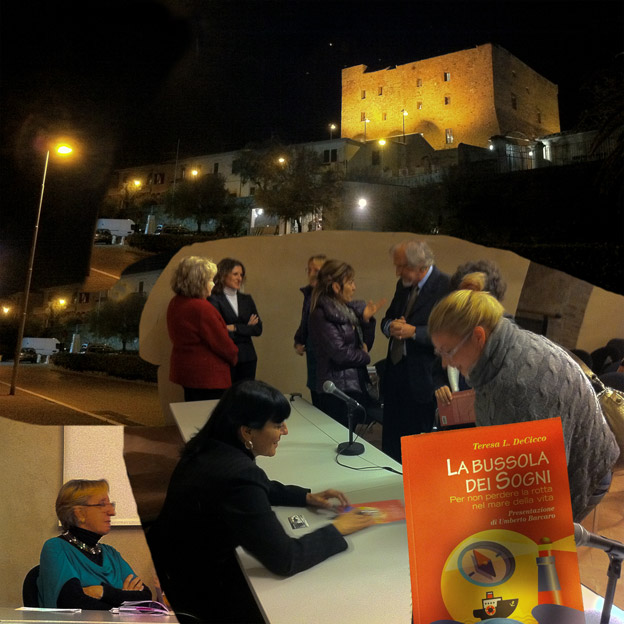I am often asked by people who are unaware of the mechanism and importance of dreaming what these images could possibly mean. It seems that when the mind sleeps our bodies are resting yet the mind is more active then ever. What could possibly be happening during this time? Scientific studies have shown us that during sleep time, the mind is in fact very active and that while certain parts of the brain are shut down, other parts become very activated. When the mind enters this essential state of sleep, the dreaming mind is then activated.
During dreaming, events of the past, present and future come to life and play out in the dream images. It is here that the life of the dreamer is revealed; uncensored and accurate. If dreams are left to their own devices (without lucidity) then the dreamer's life, emotions, ego-driven circumstances, personality, relationships etc. all become part of the dream scenes.
Research has shown that the personality of the dreamer shapes and forms the images while generating dream stories. The dreamer's personality traits and dimensions drive and sculpt the images. This in itself is very important since most people are unaware or unconscious to much of their own personality. We are all somewhat blind to our true personality and getting to know and understand one's true self is the great journey of life. As we learn about ourselves, befriending all the parts that make us who we are, we then move to a more mature personality. We know what we are good at and we do it. We know what we are not good at, and we find other solutions around them. We find our true purpose in life by acknowledging our strengths and weaknesses and then doing what we were meant to do. That may be raising a healthy, functional family, contributing to a business, painting or sculpting. No matter the medium, it's the message that matters. Dreams carry the messages that tell us who we really are, what we are meant to do, and how to it. We simply have to pay attention.
Tuesday, July 14, 2009
Subscribe to:
Post Comments (Atom)




Espressione giustissima!:
ReplyDelete“prestare attenzione , ascolto al sogno “
ai nostri sogni , ma anche a quelli degli altri in quanto terapeuti ( medici , psicologi , operatori
della salute vari) . Il sogno è un elemento importantissimo per determinare diagnosi e terapia .
Se verrà recepito che il sogno ha delle importantissime applicazioni pratiche e la ricerca in questa direzione si accrescerà , allora faremo un enorme passo in avanti…
Naturalmente questo dovrà entrare anche nella mente ( e nelle consuetudini ) dello
“uomo della strada” che ora ha una disattenzione totale nei confronti dei propri
sogni , perdendo così informazioni fondamentali per “pilotare” la propria vita.
Quei primi giorni dopo la assunzione di un nuovo farmaco o l’inserimento di una diverso ritmo di vita ( per esempio una diversa dieta alimentare , smettere di fumare ecc.) sono centrali per sapere se
la terapia è corretta , se si avranno , e se più o meno , effetti collaterali :
di solito se l’organismo ha “ bisogno” del farmaco , gli effetti collaterali possono essere minori…e questo il sogno lo dice , basta sapere ascoltare .
Tutto ciò ( la reazione dell’organismo alla introduzione di una sostanza chimica o comunque a qualunque cambiamento nei ritmi di vita ) è espressa dal sogno , per le ragioni che bene conosciamo .
Credo che sia fondamentale che il medico , lo psicologo , l’operatore della salute in genere utilizzino questo strumento.
Non conosco ricerche , neppure cliniche in questa direzione .
Forse non le conosco io .
Ho osservato solo i miei sogni dopo l’introduzione di una terapia medica.
Mi sai dire qualcosa?
Hello!
ReplyDeleteIn my opinion, the issue of an effective relation between dreamworking and medicine is very important as well as difficult to actualize in everyday practice.
The reasons are many. No doubt that a skilled dreamworker is able to retrieve from his own dreams and perhaps from those of other persons useful indications in order to deal with a therapy, life style, coping styles etc.
But, though medical practice, as any practice, is largely affected by the practioner's own experience, intuition, sensitivity, probelm solving style etc.,in itself it is based on protocols, procedures that derive from "hard sciences". Thus they are founded in the domain of experiments, stats, strife for certainty.
If something like that is possible(or will be possible in a future), and to which extent, in the area of dream studies is, as far as I know, an open question.
So the physician who wants to take advantage of dreamworking seems to me like being in the same position of a physician who tries to put together the so said "narrative based medicine" and the "evidence based medicine". The two approaches very often need to be put together, although it is not easy at all, because the epistemological premises of the two are basicly different. In order to effectively achieve this skill, the physician needs to be trained.
The difference is that with dreams the thing is more difficult, although it would be very interesting to put on appropriately aimed training for physicians.
Bye!
Donatella's comments (and Massimo's response) appear to be very relavent. The gap between psychological practice and medical practice is very large. However, there are attempts being made to educate both sides. For example, though psychiatrist practice from the medical model, they are open to using practices such as hypnosis and dream therapy. This is a very good start as it highlights to the medical profession that drugs and the biological paradigm cannot explain or treat all things.
ReplyDeleteInterestingly, there is are organizations for professionals that are combining all forms of practice; medicine, psychology, yoga, etc. One such organization is The National Institute for The Clinical Application of Behavioural Medicine (www.nicabm.com). This organziation teaches health care professionals from all disciples the mind-body connection of practice. This type of work is a start in integrating all view points and hopefully, will put dream therapy in it's own rightful place; in professional practice.